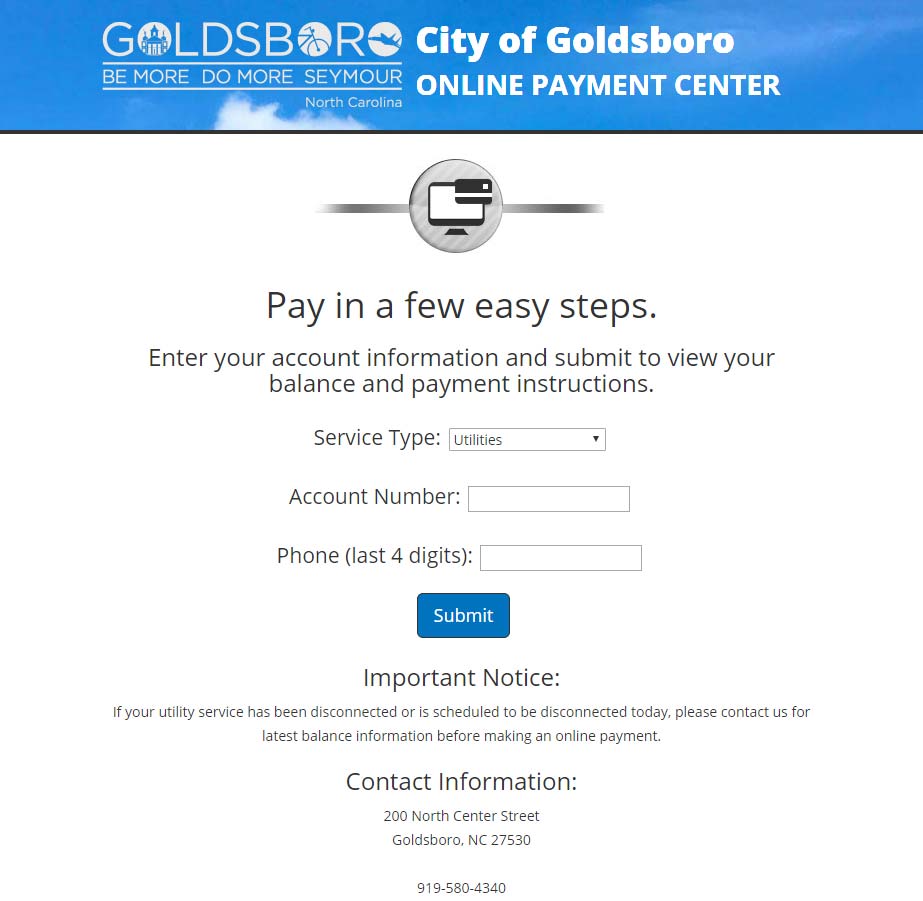Bond Frequently Asked Questions
Bond financing is often used for capital projects that are above and beyond the scope of the annual operating budget and are for facilities that will be used for many years in the future. General Obligation (GO) Bonds are the least expensive debt obligation for a local government because under this type of long-term borrowing a city pledges its full faith and credit (taxing power) to repay the debt over a specified term. While there are several ways to finance the construction of major capital projects, GO bonds provide the cheapest source of borrowed cash to fund major projects. In addition, the City of Goldsboro maintains a “AA+” bond rating by Standard & Poor’s and an “Aa2” by Moody’s Investors Service; this excellent bond rating also contributes to keeping interest rates low on money borrowed by the City.
Yes, there will be two bond questions; one for Streets and one for Parks. You can familiarize yourself with the questions that will appear on the ballot by viewing a sample ballot on here.
Your vote for the Bond Referendum will authorize the city to borrow funds to provide infrastructure improvements for the intended projects as described.
Bond referendums can be held at any time of the year, but most cities hold bond referendums during a regular election. Since other elections are already being conducted, more voters are likely to participate in the bond referendum. This bond issue will be held on November 8 in conjunction with the Presidential election.
The City is working with limited revenue growth. After operational expenses are calculated, there are limited funds for capital improvements. If the bonds do not pass, the work that is described will stretch out over many years.
Residents of the City of Goldsboro who are registered to vote are eligible voters. Early Voting begins on October 18 and Election Day is November 8. For more information on how to register, where to vote, and early voting dates and locations, call 919-731-1411 or visit the BOE website at http:// www.waynegov.com/154/Board-of-Elections.
A bond referendum gives voters the power to decide if the City should be authorized to raise funds through the sale of bonds. A general obligation bond is long-term borrowing in which a City pledges its full faith and credit (taxing power) to repay the debt over a specified term. General Obligation bonds are the least costly financing option available to the City for these projects. Given the City’s strong credit rating and financial management, Goldsboro can borrow money at lower interest rates and issuance costs, thus saving Goldsboro taxpayers hundreds of thousands of dollars over the repayment period. The City will have seven (can be extended to 10) years to issue the bonds and 20 years to pay back the bonds after the funds are received.The Goldsboro City Council has approved the opportunity for voters to consider the issuance of $10 million in bonds to finance the Capital Improvement Projects at the polls on November 8, 2016.
Under North Carolina law, a local government holding a referendum for the purpose of issuing General Obligation Bonds must specify one of three general categories of capital projects for which bond proceeds may be used – road improvements, parks and recreation facilities, and buildings/other facilities. Within these categories, a local government may identify specific projects which are intended to be funded by the bond proceeds – the “bond package.” However, due to the lengthy process involved in identifying, designing, and implementing projects, as well as the lack of detailed cost and other project information available at the time of the bond referendum, the specific projects identified in the bond package may change over time. The question which the actual bond referendum asks of voters is whether they authorize local government to use the GO bond as a financing tool for the general category of projects.
There are several ways to finance the construction of major capital projects – use current revenues, capital reserve funds (setting aside money over time), and the issuance of bonds (borrowing money to be paid back in the future). Bond financing is often used for capital projects that are above and beyond the scope of the annual operating budget and are for facilities that will be used for many years in the future. Since most cities have few reserve funds set aside for major capital projects, it is necessary to issue bonds to build major projects.



